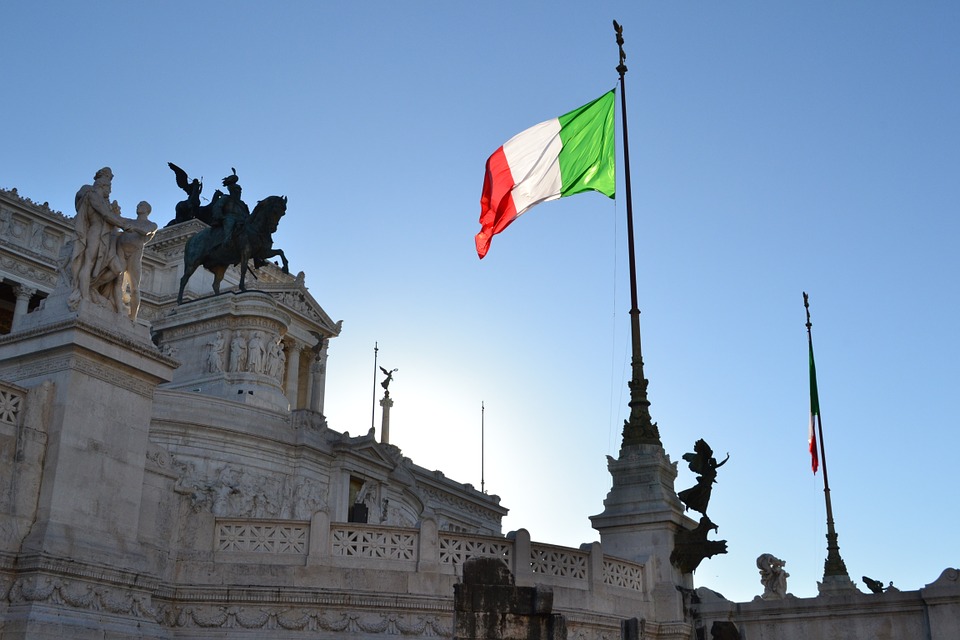Italian Finance Minister Pier Carlo Padoan harshly criticized the European Union at the World Economic Forum in Davos.
According to him, Europe used to solve problems of lagging countries, but all has changed now: "Europe is generating problems."
Padoan said that Brussels’ officials, responsible for policy-making, have no clear understanding of how it can be expressed in concrete actions in the private sector.
"There is such a vision in other places, you can agree or disagree with it, but this is the challenge that Brexit and Trump pose to us. They have a vision, we do not, at least we don’t have one that could match their impulse", - he added.
Padoan’s irritation is understandable. The European Commission on Tuesday sent a letter to new Prime Minister of Italy Paolo Gentiloni with a requirement to reduce the country's budget deficit in 2017 at 0.2% of GDP, or € 3,4 Bln.
The letter "is a part of ongoing dialogue between the Commission and the Italian authorities," said a representative of the European Commission. Rome must respond to the request by February 1, when the updated economic forecast will be published. The Ministry of Finance of Italy promised to decide how to respond to the letter within a few days: really cut spending and raise taxes, or ignore request of the European Commission. In the latter case. The country can be fined.
Recall that in November last year, the European Commission issued a warning to eight countries that do not comply with budgetary commitments. Among them were Italy, Spain, Lithuania, Slovenia, Finland, Cyprus, Portugal and Belgium.
Brussels requires that the budget deficit in 2017 do not exceed 3% of GDP (limits for some have been lowered), and the national debt should be less than 60%.
If the countries do not fulfill these conditions, they may be fined in the amount of 0.2% of GDP.
In May last year, Rome agreed to reduce the budget deficit to 1.8% of GDP. However, when Matteo Renzi released a budget plan in October, the projected deficit rose to 2.3% of Italy's GDP.
Rome then explained imminence of the deficit growth by increased spending due to the earthquakes occurred in the summer, as well as the immigration crisis.
In addition, the European Commission is concerned about Italy’s debt, which is 133% of GDP (€ 2,2 trillion) - the second largest after the Greek.
Padoan explains complexity of the reduction of public debt by deflation and unsuccessful market conditions that impede planned privatization.
On Monday, January 16, the IMF lowered its forecast for economic growth in Italy for 2017-2018 to 0.7% of GDP (-0.2 pp) and 0.8% of GDP (-0.3 pp) respectively. In turn, the euro zone economy should grow by 1.6% in each period.
source: wsj.com
According to him, Europe used to solve problems of lagging countries, but all has changed now: "Europe is generating problems."
Padoan said that Brussels’ officials, responsible for policy-making, have no clear understanding of how it can be expressed in concrete actions in the private sector.
"There is such a vision in other places, you can agree or disagree with it, but this is the challenge that Brexit and Trump pose to us. They have a vision, we do not, at least we don’t have one that could match their impulse", - he added.
Padoan’s irritation is understandable. The European Commission on Tuesday sent a letter to new Prime Minister of Italy Paolo Gentiloni with a requirement to reduce the country's budget deficit in 2017 at 0.2% of GDP, or € 3,4 Bln.
The letter "is a part of ongoing dialogue between the Commission and the Italian authorities," said a representative of the European Commission. Rome must respond to the request by February 1, when the updated economic forecast will be published. The Ministry of Finance of Italy promised to decide how to respond to the letter within a few days: really cut spending and raise taxes, or ignore request of the European Commission. In the latter case. The country can be fined.
Recall that in November last year, the European Commission issued a warning to eight countries that do not comply with budgetary commitments. Among them were Italy, Spain, Lithuania, Slovenia, Finland, Cyprus, Portugal and Belgium.
Brussels requires that the budget deficit in 2017 do not exceed 3% of GDP (limits for some have been lowered), and the national debt should be less than 60%.
If the countries do not fulfill these conditions, they may be fined in the amount of 0.2% of GDP.
In May last year, Rome agreed to reduce the budget deficit to 1.8% of GDP. However, when Matteo Renzi released a budget plan in October, the projected deficit rose to 2.3% of Italy's GDP.
Rome then explained imminence of the deficit growth by increased spending due to the earthquakes occurred in the summer, as well as the immigration crisis.
In addition, the European Commission is concerned about Italy’s debt, which is 133% of GDP (€ 2,2 trillion) - the second largest after the Greek.
Padoan explains complexity of the reduction of public debt by deflation and unsuccessful market conditions that impede planned privatization.
On Monday, January 16, the IMF lowered its forecast for economic growth in Italy for 2017-2018 to 0.7% of GDP (-0.2 pp) and 0.8% of GDP (-0.3 pp) respectively. In turn, the euro zone economy should grow by 1.6% in each period.
source: wsj.com





